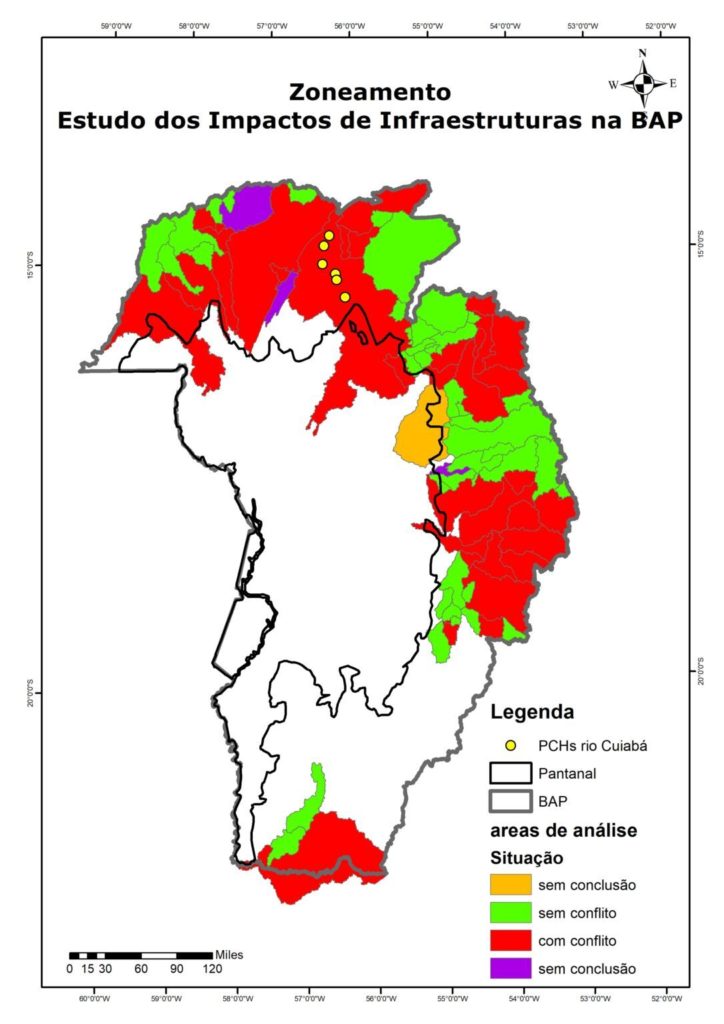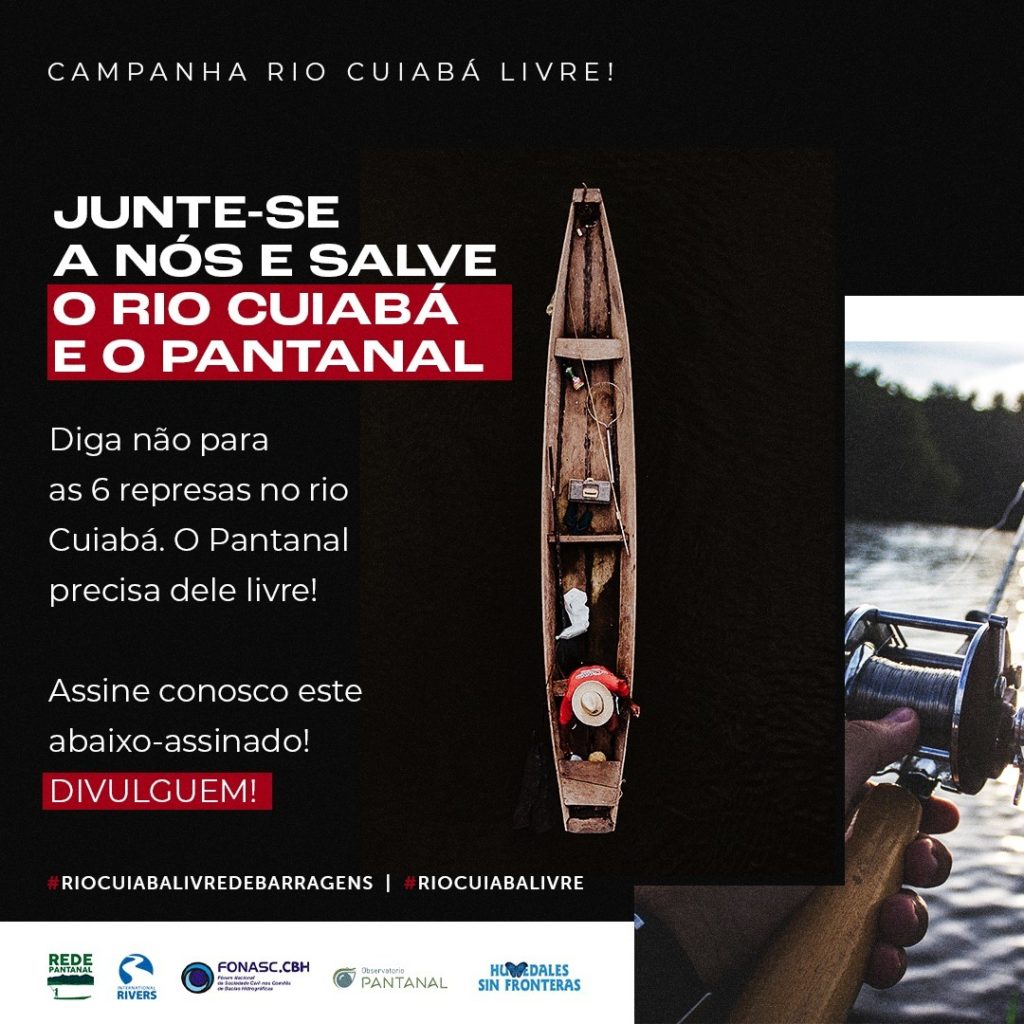The coalition pressures Mato Grosso State environmental agency (SEMA) to suspend licensing to six new dams planned to be built on the Alto Paraguay basin.
A coalition of Brazilian and international civil society organizations and social movements* has launched a petition to pressure the Mato Grosso State environmental agency (SEMA) against the approval of environmental licenses for six proposed dams on the Cuiabá River, a vital body of water in the Alto Paraguay basin. The online petition urges SEMA to consider the substantial environmental impact of these dams on biodiversity and traditional populations of the Pantanal, the world’s largest tropical wetlands.

By compounding environmental impacts to an already fragile ecosystem, these new dams would interrupt ecological connectivity between floodplains and upland plateaus, altering fish migrations and interrupting sediment flows crucial to the river’s survival. Furthermore, the proposed dams would drastically change the hydrological regime of the whole region, increasing the risk of dry seasons and fire outbreaks.
The six planned dams are small-scale hydropower plants, generally producing less than 30 MW. This type of hydroproject is erroneously considered to be low-impact, and energy companies are not obligated by law to prepare an Environmental Impact Assessment (EIA). The region where the dams are planned to be constructed is what the National Water Agency (ANA) calls a red zone or a conflict zone – which means that any kind of hydroproject has the potential to cause environmental imbalance.
Both small and large scale hydroelectric dams are considered strategic infrastructure projects within the Brazilian National Energy Plan (PNE 2050). The Alto Paraguay Basin, which contains the Pantanal complex, is considered a priority territory for new dams. Currently, 38 dams are operating in the basin; four are under construction, seven have received water use concessions from the federal government and 11 are under study. Traditional communities are fighting for respect for their right to free, prior and informed consultation and consent in decisions concerning proposed high-risk projects, while holding companies accountable for damages caused by existing dams.
The Cuiabá River and why it is important to protect it.
The Cuiabá River nurtures and maintains the lives of local fish and a magnificent variety of other wildlife. Fish species like pacu, pintado, japu and dourado need the river flowing free to take part in the piracema – the time when fish migrate to reproduce. The Cuiabá River is solely responsible for 54% percent of the catch among traditional fishermen in Alto Paraguay basin, and where 47% of all fish catches take place.
If proposed dams are built, the piracema will disappear, affecting the food chain and people who depend on it. Another potential effect is that the recomposing of native grassland, key to local cattle raising, would be compromised due to changes in the hydrological regime and retention of sediment flows.
Protecting the integrity of the Cuiabá River is now more important than ever. Under the administration of far-right president Jair Bolsonaro, Brazil is facing a backsliding on environmental and traditional people rights. On May 13, Brazil’s lower house of Congress approved the new Law of Environmental Licensing, which loses, simplifies or extinguishes fundamental legal instruments that help to evaluate, prevent and protect the environment against damages caused by infrastructure projects. The licensing bill will next go to Brazilian Senate for consideration.
Another proposed law (PL 510/21) – also known as Land-Grabbing Law – would facilitate concession of private land titles to large-scale speculators and ranchers that have invaded and illegally cleared forests on public lands, especially in the Amazon.

*The petition was launched by the Coalition for Permanent Protection of Brazilian Rivers, Fórum Nacional da Sociedade Civil nos Comitês de Bacias Hidrográficas, Humedales Sin Fronteras, Observatório Pantanal e Rede Pantanal.
More information – Contacts: +55 11 972906686 (Cecília – International Rivers) / +55 67 8123-4930 (Paula – Rede Pantanal).
Featured Photo: Cuiabá River by Roi Shomer

